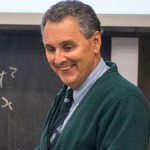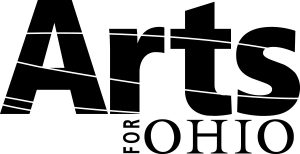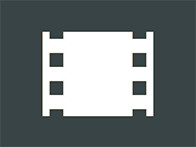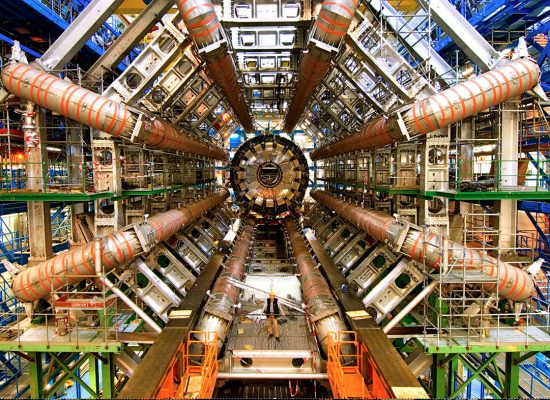Return
The Science of the Smallest Particle
A discussion about the basic science of the “smallest” particles, as well as the scales by which energy and matter are studied at many levels by physicists, led by OU’s Dr. David Ingram.
About the film
Imagine being able to watch as Edison turned on the first light bulb, or as Franklin received his first jolt of electricity. For the first time, a film gives audiences a front row seat to a significant and inspiring scientific breakthrough as it happens. Particle Fever follows six brilliant scientists during the launch of the Large Hadron Collider, marking the start-up of the biggest and most expensive experiment in the history of the planet, pushing the edge of human innovation. As they seek to unravel the mysteries of the universe, 10,000 scientists from over 100 countries joined forces in pursuit of a single goal: to recreate conditions that existed just moments after the Big Bang and find the Higgs boson, potentially explaining the origin of all matter. But our heroes confront an even bigger challenge: have we reached our limit in understanding why we exist? Directed by Mark Levinson, a physicist turned filmmaker, from the inspiration and initiative of producer David Kaplan and masterfully edited by Walter Murch (Apocalypse Now, The English Patient), Particle Fever is a celebration of discovery, revealing the very human stories behind this epic machine.
About the speaker
 David Ingram has been curious about electronic materials and devices ever since he was 9 years old, when his uncle took him and his family to an open house at the Royal Radar Establishment, Malvern, England, where his uncle had worked since the start of World War II. As an experimentalist, he works on growing new materials and studying their properties. A classic method of making semiconducting devices is to use ion implantation. With this method, one can take any isotope of any element in the periodic table and implant it in a substrate. This led him into the study of the interaction of energetic particles with matter and now into areas of applied nuclear science where low energy nuclear physics and materials science intersect.
David Ingram has been curious about electronic materials and devices ever since he was 9 years old, when his uncle took him and his family to an open house at the Royal Radar Establishment, Malvern, England, where his uncle had worked since the start of World War II. As an experimentalist, he works on growing new materials and studying their properties. A classic method of making semiconducting devices is to use ion implantation. With this method, one can take any isotope of any element in the periodic table and implant it in a substrate. This led him into the study of the interaction of energetic particles with matter and now into areas of applied nuclear science where low energy nuclear physics and materials science intersect.
Return
Science on Screen® is an initiative of the Coolidge Corner Theatre, with major support from the Alfred P. Sloan Foundation. The Science on Screen program pairs films with a short talk with a scientist or technology expert. The free Science on Screen events are fun and engaging, offering dynamic speakers an unexpected jumping point to teach their field of expertise in a way that is accessible to a diverse audience.

Free admission to this event is provided by Arts for OHIO.



 99
99 

